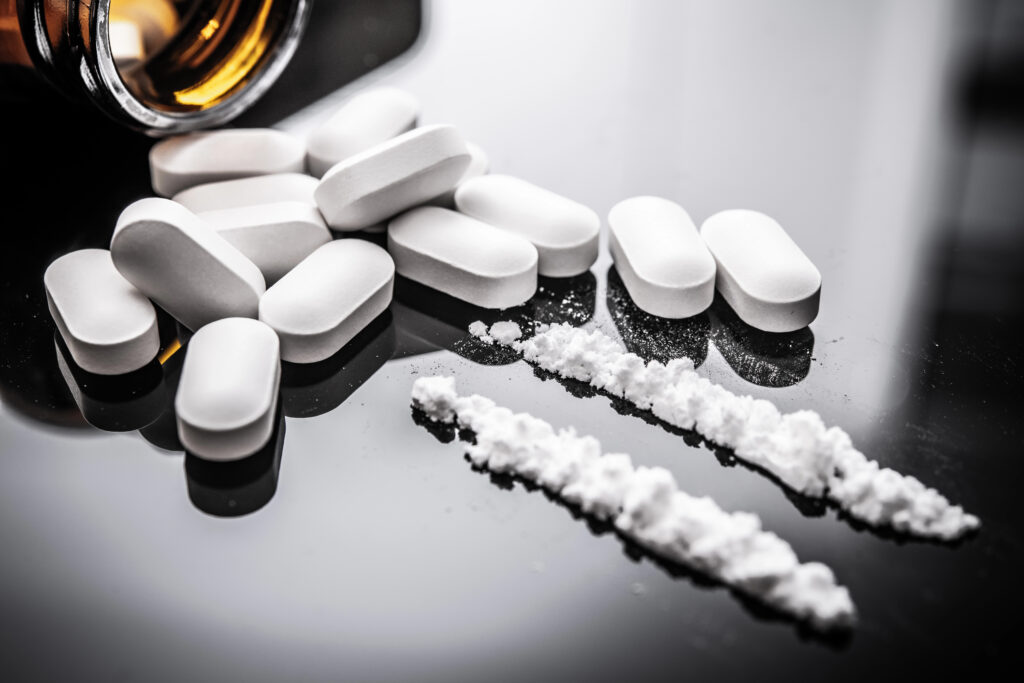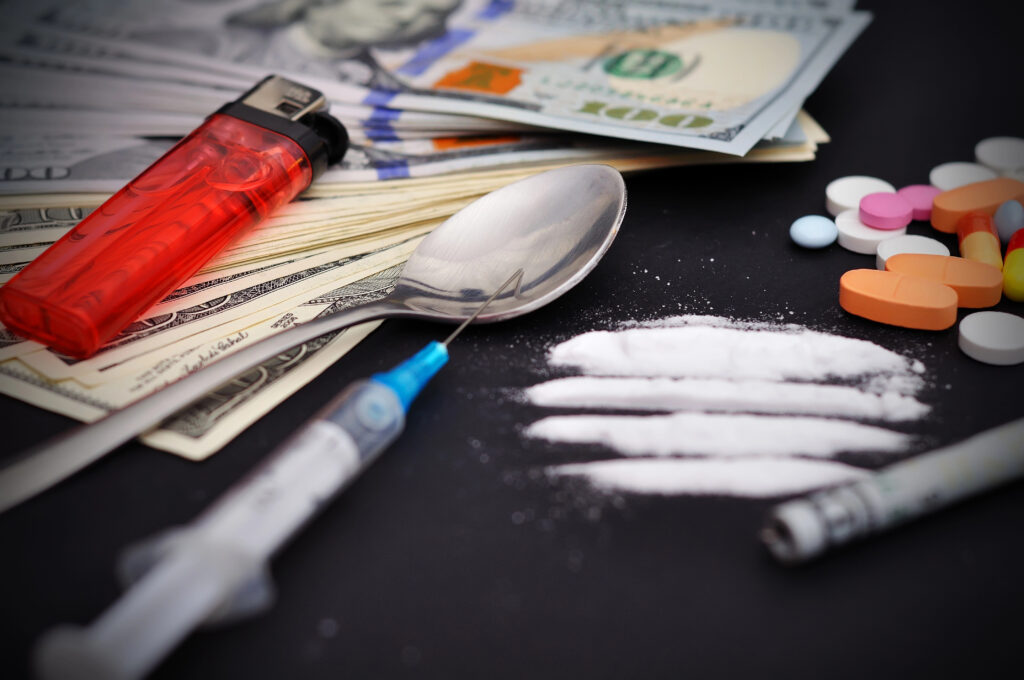Cocaine addiction can deeply affect both your body and mind, creating challenges that feel impossible to defeat. One of the most daunting aspects of overcoming this addiction is facing the withdrawal symptoms that come with it. Understanding how the withdrawal process works will help you better prepare for the road to recovery ahead.
While sobriety isn’t always the easiest journey, gaining a clear understanding of what to expect and how to manage the process can help you take the first steps toward a healthier, addiction-free life.
What is Cocaine Withdrawal?
Cocaine withdrawal occurs when a person who has been using cocaine regularly stops taking the drug. Cocaine is a powerful stimulant, and stopping its use abruptly can lead to various physical and psychological symptoms. These withdrawal symptoms can be difficult, but understanding them is the first step toward recovery.
According to the Substance Abuse and Mental Health Services Administration, cocaine withdrawal presents a bit differently than other drugs. Unlike alcohol or heroin withdrawal, which often exhibits physically visible effects such as tremors or vomiting, cocaine withdrawal symptoms are predominantly psychological. These include severe cravings, paranoia, anxiety, suicidal ideation, and intense fatigue.
The psychological impact can be profound, making it essential for individuals to seek professional help during the withdrawal process to manage these symptoms effectively.
Common Cocaine Withdrawal Symptoms
The withdrawal symptoms experienced during cocaine detox can vary significantly based on how long and how intensely an individual has used the drug. These symptoms can be uncomfortable and difficult to handle, with severe withdrawal symptoms often prompting a need for medical support and a structured treatment plan.
Some common cocaine withdrawal symptoms include:
- Intense cravings for cocaine
- Severe depression
- Anxiety and irritability
- Fatigue and lethargy
- Increased appetite
- Difficulty concentrating
- Muscle aches and physical discomfort
- Psychomotor retardation (slowed physical and mental activity)
- Suicidal thoughts
These cocaine withdrawal symptoms can range from mild to severe and can be both physically and emotionally taxing. Because of cocaine’s impact on the brain’s reward system, which floods dopamine to create euphoria, withdrawal leads to a sharp decrease in dopamine levels. This drop exacerbates the challenges of withdrawal management, contributing to the high prevalence of drug addiction for those who abuse cocaine.

The Cocaine Withdrawal Timeline
The timeline for cocaine withdrawal can vary based on multiple factors, such as the length of the drug dependence, the amount used, and the individual’s overall health. Generally, many experience withdrawal symptoms within a few hours of the last use, and those may peak within the first few days. Acute withdrawal symptoms typically subside within one to two weeks, but protracted or extended withdrawal symptoms can last for months.
Here is a general outline of what to expect during the withdrawal process:
Hours 0-24: Initial Symptoms
- Onset: Symptoms may start within a few hours after the last use.
- Common Symptoms: Fatigue, increased appetite, cravings, agitation, and difficulty sleeping.
Days 1-3: Acute Withdrawal Phase
- Peak: Symptoms typically reach their peak during the first few days.
- Common Symptoms: Intense cravings, mood swings, irritability, anxiety, depression, and possibly physical symptoms like headaches or muscle pain.
Days 4-7: Early Recovery Phase
- Subside: Acute symptoms start to diminish.
- Common Symptoms: Ongoing mood swings, depression, fatigue, and cravings may still be present but are less intense.
Weeks 2-4: Stabilization Phase
- Continued Improvement: Most acute symptoms significantly lessen.
- Common Symptoms: Reduced cravings and improved mood, but potential for persistent anxiety or depressive symptoms.
Months 1-3: Protracted Withdrawal Phase
- Lingering Effects: Some symptoms can persist or resurface.
- Common Symptoms: Occasional cravings, mood swings, depression, and anxiety might continue. The individual may experience difficulty concentrating and a low overall energy level.
Beyond 3 Months: Long-Term Recovery
- Gradual Improvement: Protracted withdrawal symptoms continue to decrease.
- Common Symptoms: Occasional mood fluctuations or cravings, but an overall improvement in emotional stability and daily functioning.
This timeline is a general guide, and individual experiences may vary. Seeking professional support during withdrawal can significantly help manage symptoms and promote recovery.
Managing Cocaine Withdrawal Symptoms
Managing symptoms of cocaine withdrawal can be difficult to handle on your own. Depending on how long you’ve used the drug, in addition to other substance abuse, you may find that you need help to weather the storm. Here are some approaches to consider:
- Medical Detox: In a medical detox setting, healthcare professionals monitor vital signs, manage severe symptoms, and prescribe medications to alleviate discomfort and cravings.
- Inpatient Treatment: Inpatient rehab provides a structured environment where individuals can focus solely on recovery without external distractions.
- Outpatient Rehab: For those with milder withdrawal symptoms, outpatient rehab offers flexibility to receive treatment while maintaining daily responsibilities.
- Support Groups: Groups like SMART Recovery and other support networks provide emotional support and practical advice from people who have experienced similar challenges.

Treatment Options for Cocaine Addiction
Cocaine addiction treatment involves addressing both the physical dependence and the psychological aspects of the addiction. Common treatment options include:
- Cognitive Behavioral Therapy (CBT): CBT helps individuals identify and change negative thought patterns and behaviors associated with cocaine use.
- Medication-Assisted Treatment (MAT): While there are no specific medications for cocaine withdrawal, medications may be prescribed to manage symptoms like severe depression or anxiety.
- Behavioral Therapies: Therapies such as contingency management, group therapy, and motivational interviewing can help reinforce positive behaviors and motivate individuals to stay sober.
- Integrated Treatment for Co-Occurring Disorders: Many people with cocaine addiction also suffer from other drug abuse or mental health disorders. Integrated treatment addresses both issues simultaneously for better outcomes.

The Importance of Immediate Medical Attention
Cocaine withdrawal can occasionally lead to severe and life-threatening symptoms, including seizures and suicidal thoughts. If you or someone you know experiences these intense symptoms, it is important to seek immediate medical attention.
Prompt intervention from medical professionals can help manage these risks and provide essential care and support, ensuring safety and stability throughout the withdrawal process. Proper medical oversight is vital for navigating these hurdles and facilitating a safer recovery.
Seeking Professional Help
If you or a loved one is struggling with the effects of cocaine use or withdrawal, seeking professional help is the next important step to take. Mental health professionals, addiction specialists, and substance abuse treatment centers like Forrest Behavioral Health can provide comprehensive care tailored to your needs. They can support you through the withdrawal phase and treatment process, guiding you in building a healthier, substance-free life.

Contact Forrest Behavioral Health Today
By seeking the right support and utilizing effective treatment strategies, you can overcome withdrawal challenges and embark on a path to lasting recovery. Remember, the journey may be difficult, but with the right help, a healthier, drug-free life is within reach.
Forrest Behavioral Health is dedicated to providing comprehensive care and support throughout the withdrawal and recovery process. For more information on cocaine withdrawal and treatment options, reach out to our team.












